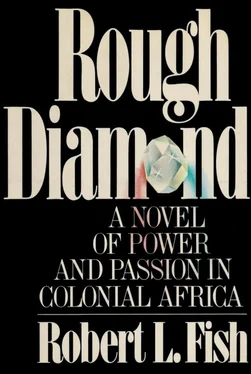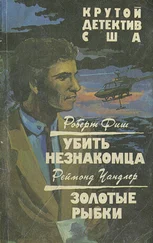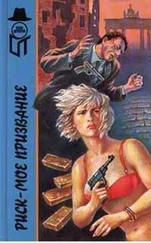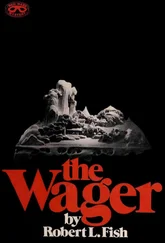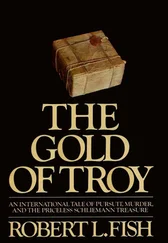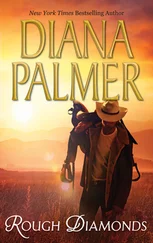It was a good act and well rehearsed. Rudd found himself laughing uproariously with everyone else in the bar. Rhodes was merely smiling indulgently at the antics he had just witnessed. He looked at the barman, who was wiping his eyes. “Who are they?”
“Seen it every night for three weeks straight,” said the barman, “and they still kill me!”
“Who are they?”
“Call themselves the Barnato Brothers.”
“Italian?” Rhodes frowned. “They don’t look it.”
“Naw!” The barman grinned. “Their real name is Isaacs.”
“Jews,” Rhodes said with a look of distaste.
“I guess so,” the barman said without interest, and went off to serve another customer.
“Well, how did you like it?” Rudd said.
“They’re Jews,” Rhodes said, and dismissed the act and the actors from his mind. Rudd merely stared at him, shrugged, and returned to his drink.
In the kitchen, where Harry and Barney had gone to change their clothes and receive their sandwich and a beer, Harry tilted his head in the general direction of the other room. “See the tall fellow standing at the end of the bar?”
Barney put his head around the corner of the door, taking in the scene at the bar without being noticed himself; it was a skill learned early in life in the East End and often saved a lot of trouble. “You mean the cove what looks like a horse ain’t eaten for a month? Next to the stocky bloke with the sandy mustache?”
“That’s the one,” Harry said. He folded his oversized trousers with care, from habit. Since Barney’s arrival Harry had gone back to being the toff he had been when tending bar and acting as bouncer at the King of Prussia. “That’s Cecil Rhodes, the one who brought in that steam pump your wagon carried up from Cape Town. He and the fellow with him have three or four good claims in the De Beers. Getting rich, they say.”
“Ten to one the stocky bloke does all the work,” Barney said, and went back to changing his clothes. “Old horseface don’t look like no bloody genius to me.” He suddenly grinned. “Good news. Just proves it don’t take no brains to get rich around here.”
And when they had changed clothes and had eaten and came up front to the bar, Rhodes and Rudd had gone. The barman had a small box with donations that had been collected for the two for their artistry; there were several one-pound notes as well as the usual fair amount of silver. Barney and Harry’s eyebrows went up. It was an inordinately high amount for the two to collect.
“Some digger must have found a two-hundred-carat today,” Harry said in awe.
“Or else he had too much beer for supper,” Barney said with a smile as they each accepted a whiskey from an admiring barman.
“Rhodes, probably. He can afford it,” Harry said.
Barney looked at him.
“A bob will earn you a quid that he didn’t leave so much as a tanner,” he said quietly, and asked the barman out of simple curiosity, although he was fairly sure. But the barman hadn’t noticed; he had been busy at the other end of the bar and had been as surprised as anyone to find the unusual donation in the box.
Still, Barney would have won his bet. It was Charles Rudd who had dropped the two one-pound notes in the box when Rhodes wasn’t looking. One pound had been for him and the other for his partner, and both had been in appreciation to the gods for having made the pumping machine work; as well as for keeping it working smoothly in the future. It was cheap at the price, Rudd thought, and the fact that Rhodes was unaware of the gift would probably make the gods that much more cooperative. Charles Rudd was quite perceptive, especially after two double whiskeys.
And the pennies became shillings, and the shillings became pounds, and the pounds began to multiply, until after several months in Kimberley, Barney Isaacs came back to their tent one night, and as he and Harry sat down to some supper, Barney broke the news.
“I bought a horse and cart today,” he said conversationally, quite as if he bought horses and carts almost daily.
Harry almost choked on his mealies. “You what?”
“I said, I bought a horse and cart today.”
“Why, for God’s sake?”
Barney sighed. “D’you remember when I first came to Kimberley I told you about followin’ this kopje walloper in his cart all mornin’?”
“I remember something but I don’t remember what,” Harry said shortly. He still could not imagine the faintest reason for Barney spending good money on a horse and cart. Horses ate food the same as humans, only a lot more. “So?”
“So,” Barney said equably, not at all disturbed by Harry’s attitude, “I noticed somethin’ that mornin’ that I never forgot. So when I heard the old walloper wanted to sell his horse and cart and go home, I remembered what it was I hadn’t forgot.”
“And just what did you remember you hadn’t forgot?” Harry asked sardonically.
“I remembered when I was followin’ him that mornin’, that old walloper never directed that horse. He just sat back, half asleep, and the horse made the stops. He’d pass up the yards they never stopped at, and just stop at the ones he knew the old man always went to.” Barney raised a finger for emphasis. “And just about everywhere that old horse stopped, the old man made himself a buy.”
“So what’s that got to do with you?”
“It’s got this,” Barney said intently. “I always figured when we got three hundred quid together, I was goin’ to have a try at bein’ a walloper. Now we got it and a bit more, even after buyin’ the horse, the cart, the old man’s loupe, and his scale. I even bought his belt,” Barney added. “You taught me enough about stones to get started; the rest I can learn as I go.”
Harry considered his brother in silence for several moments before he spoke. “No more culling?”
“Not for a while,” Barney said confidently. “The next cullin’ I do is goin’ to be on our own dirt. Or I’ll do the diggin’ and you can cull; it makes no difference.”
“With the three hundred pounds we have, we could hire Kaffirs and rent claims right now,” Harry pointed out. He was intrigued by Barney’s planning. He had thought they were doing fine, but it was obvious that his younger brother had far greater ambitions. He wondered for a moment where those ambitions would eventually end. “If you want the pleasure of breaking your back down in that hole, you can have it. I can work at my job mornings and sort afternoons.”
Barney shook his head. “No. Two things: first, it’s good you’re workin’ at a trader’s. I can get a reasonable price for any good stones I buy. And second, three hundred quid ain’t nowhere near enough to get us the claims I want.”
“And which claims do you want?”
Barney grinned. “I want the ones that are producin’ diamonds, and I mean diamonds!” He winked. “And I’ll know which ones those are after I been buyin’ and sellin’ for a few weeks…”
After paying for the equipment he had purchased, as well as for the horse and cart, and after arranging at the same stable for the horse’s keep, Barney’s first stop the following morning was at the sorting yard where he had first started going through already culled dirt. The bearded man, Jerry Weston, was still at the sorting table with the same red-haired partner. The two looked up as the horse came into the yard. Weston stared with surprise to see Barney at the reins.
“Hello, Barney.” Through his turn with Harry at the Paris Hotel, both brothers had become well-known by this time in the mining camp. “The old man hire you to drive for him today? Isn’t he feeling well?”
“Hello, Jerry. No, the rig is mine. I bought it off the old man yesterday. He’s off back home.” Barney grinned. “He got rich off you guys. Now it’s my turn.”
Читать дальше
